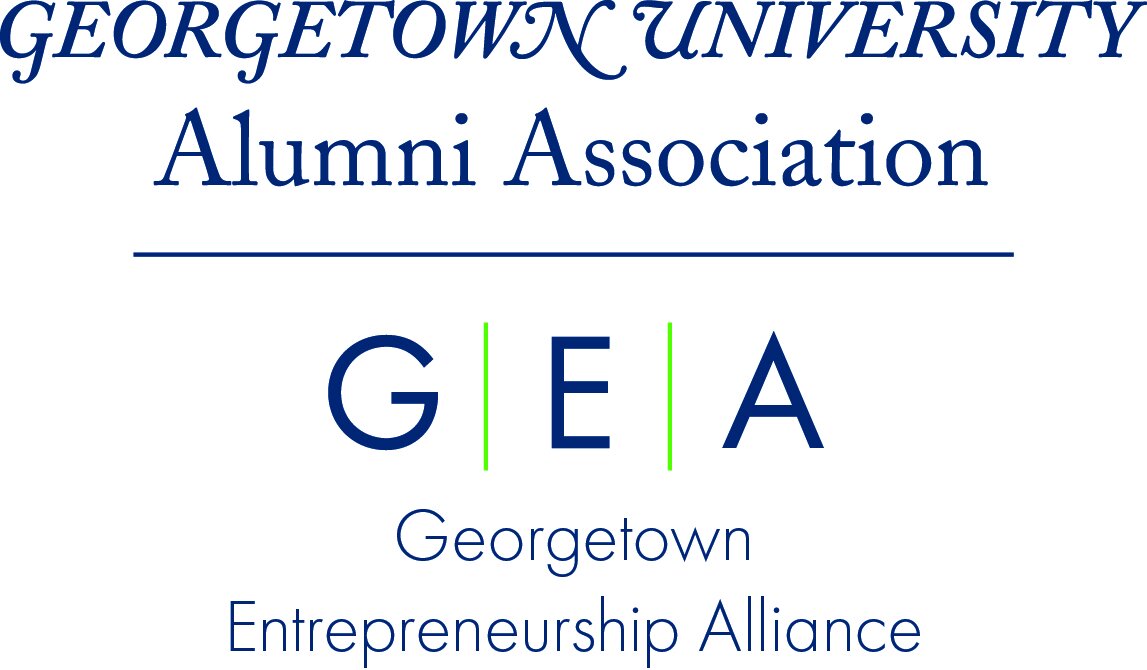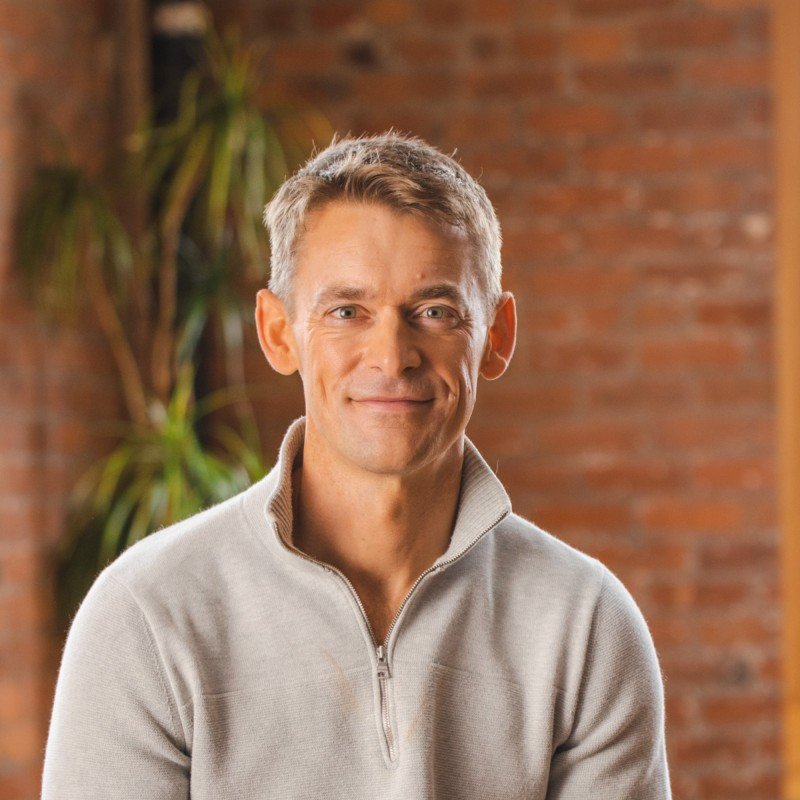Alumni Spotlight: Doug Grant (MBA’16), Co-Founder and CEO of Atlantic Fish Co.
Interview by Genesis Ramirez (B’25)
Meet Doug Grant (MBA’16), the Co-Founder and CEO of Atlantic Fish Co. Doug is working to revolutionize how we eat by using cellular agriculture to make the world’s most sustainable cultivated seafood.
Was there any specific aspect of your time at Georgetown that influenced you to pursue entrepreneurship?
Absolutely. When I came to Georgetown for my MBA, I hadn’t been thinking about entrepreneurship or start-ups at all. I had been in the military for ten years, then had a vague idea that I wanted to do something in real estate. However, I pretty quickly caught the entrepreneurship bug and took almost every class that was offered in entrepreneurship. So, I decided that was the track I wanted to go down. I was getting out of the Navy and business school, and I thought, “If I don’t start a business now, I’m probably never going to do it.” So, Georgetown was instrumental. I never considered entrepreneurship before business school.
What inspired you to create Atlantic Fish Co.?
Right out of business school, I co-founded another start up, Hemeos, which was a bone marrow registry. Then I worked on another consumer fintech app with a classmate from Georgetown. So, I always thought I would get into something related to software. I was working in product management; that was the path. I stumbled across this industry after seeing an article in Rolling Stone magazine about another company that was using this technology to make cultivated duck. I thought this was fascinating and could have huge implications for the world. I was interested and I started a podcast covering the alternative protein industry. This enabled me to meet a lot of people. I got really committed to the ideas of climate change associated with animal protein and animal welfare – all these things that come from what we eat. I saw an opportunity with seafood technology, so we were up and running. I got a technical co-founder, and we started Atlantic Fish Co. over two years ago.
Is there a specific experience that made you realize that cellular agriculture could be the key to revolutionizing seafood sustainability? If so, how does this drive your work today?
There are really three pillars of alternative protein: plant based (like Beyond Meat or Impossible), fermentation (making proteins similar to meat and seafood), and then cellular agriculture. Cellular agriculture uses real animal cells. It is real meat or seafood – you just grow it directly to form the meat, not the animal. In our eyes, this gives consumers what they really want. Some of these alternatives are replicas, and while they are close, they’re not the real thing. If we could find a more sustainable and ethical way to create this real meat and seafood people want, it is a better product. There were a couple cellular agriculture companies out there, so we thought, “What market do we want to focus on?” A lot of folks were focused on chicken, pork, and beef, but not as much on seafood. We thought there was a strong business model with seafood because you can’t make more ocean. We can only catch so many fish. There is a naturally built-in supply constraint.
What does a day in your life look like?
One of the challenges of entrepreneurship, especially with an early small stage team, is that you can do almost anything with your day. It is so easy to get side tracked by things that are not important. My primary job as CEO is ensuring that we have funding for the company. I speak to and take feedback from investors to make the business stronger, develop partnerships, and talk to customers. Since we are making this highly technical and complicated product, I really have to get people excited about it; both investors and potential customers. It’s really those two buckets: fundraising for the company and talking to investors, and talking to customers.
What is the hardest part of your job?
Right now, we are a small team of five. I am the sole business side – everyone else is technical. That is by design, because we really wanted to make sure we have the scientific team that can do this work. But, that means I end up doing many other functions. I didn’t always love finance, but I run all the financials. As we mature, I know what my weaknesses are and I would want to hire and bring people in to do those things. Website design, branding, running the books; right now, I am a jack of all trades.
What is the most fulfilling part of your job?
This is a really mission driven company. We are trying to change the way that the world eats – this is a long term goal. We are in the trenches with it, so you can lose sight of it. One of the most rewarding experiences is when we were letting potential customers try the product. It really blows their minds, trying cultivated black sea bass. That was a really cool moment for me, and I look forward to many more of these as we get the product in front of people, letting them see it and eat it. Then, imagining what the world would be like if we multiply that up to every plate in the world.
Is there anything you wish more people knew about your industry?
At a high level, what the product is. There’s this description of “lab grown meat” in the media. But, it isn’t grown in a lab any more than Cheerios are made in a lab. Almost any food product you get was made in a food product facility or in a food formulation lab. It is hard to explain if I say “cellular agriculture” or “cultivated seafood”. And unfortunately, the fastest way to explain is incorrect – if I were to say “lab grown seafood”. The product is made in a food production facility. This is really frustrating, just the communication. Understandably, people don’t like it when you say it is grown in a lab.
How does Georgetown continue to support you as an alumni?
Huge! We recently got support through the Georgetown Angel Investor Network, which was incredible for us. We got the opportunity to go to Dublin and pitch at the GEA Alumni Pitch Competition, which was incredible. We have met a lot of investors through that. Some of our earliest funding came from the Georgetown network.
Finally, what is one piece of advice you would give to any Georgetown student who might be interested in entrepreneurship?
I think about this with the post-mortem of my first business. It is important to predict the post-mortem ahead of time, to spot what your weaknesses might be. If you are in a business that needs funding, make sure it is fundable. Is it a big opportunity? Is there an addressable market? Also, it is important to think about why you are the best person to be in this business. My business now, this is something that I live everyday. This is really central to my identity. I feel that I am the right guy for this. Essentially, think about where the money is coming from and why you.
Closing notes
Atlantic Fish Co. products are not yet on the market, as they are still in a development stage. However, feel free to learn more about them at atlanticfish.co.
If anyone is interested or has any questions, please feel free to reach out! If you know any restaurateurs or chefs or any others in the food service industry who are interested in cultivated seafood, I’m happy to talk.


